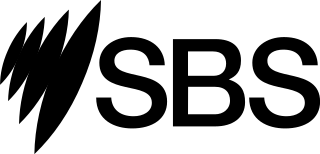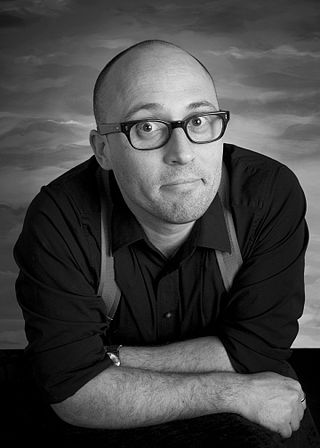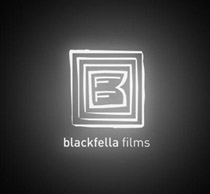
The Special Broadcasting Service (SBS) is an Australian hybrid-funded public service broadcaster. About 80 percent of funding for the company is derived from the Australian Government. SBS operates six TV channels and seven radio networks.
The term independent animation refers to animated shorts, web series, and feature films produced outside a major national animation industry.

Television in Australia began experimentally as early as 1929 in Melbourne with radio stations 3DB and 3UZ, and 2UE in Sydney, using the Radiovision system by Gilbert Miles and Donald McDonald, and later from other locations, such as Brisbane in 1934.

John Michael Safran is an Australian radio personality, satirist, documentary maker and author, known for combining humour with religious, political and ethnic issues. First gaining fame appearing in Race Around the World in 1997, Safran went on to produce a series of documentaries, television shows and host radio programs.

Harvie Krumpet is a 2003 Australian clay animation psychological comedy-drama short film written, directed and animated by Adam Elliot, and narrated by Geoffrey Rush. It tells the life story of Harvie Krumpet, a Polish-Australian man whose life is plagued by bad luck but who nevertheless remains optimistic.
The ATOM Awards are a group of awards offered to Australian and New Zealand "professionals, educators and students", honoring achievements in the making of film, television, multimedia, and from 2007 multi-modal productions.

Race Around the World was an Australian travel documentary and competition series produced by the Australian Broadcasting Corporation in 1997 and 1998. The series was brought to the ABC by filmmaker Michael Rubbo, and was based on the Canadian television series La Course destination monde (1988–1999).

Yoram Jerzy Gross was a Polish-born, Australian producer of children's and family entertainment.

Adam Elliot is an Australian stop-motion animation writer, director and producer based in Melbourne, Australia. His five films have collectively participated in over seven hundred film festivals and have received over one hundred awards, including an Academy Award for Harvie Krumpet and five Annecy Cristals. Elliot calls himself an auteur filmmaker and each of his films have a bittersweet nature to them. He does not engage with commercial work and works exclusively on his own film projects. Based loosely on his family and friends, Elliot calls each of his works a Clayography – clay animated biography. Each film takes up to five years to complete. He is noted for his use of traditional 'in-camera' techniques, which means every prop set and character is a 'real' miniature handcrafted object. Elliot does not use digital additions or computer generated imagery to enhance his visual aesthetic. His company, Adam Elliot Clayographies, produce the films and Elliot's work practices adhere to the French auteur methodology. Each film has been voiced by notable actors including, Philip Seymour Hoffman, Toni Collette, Geoffrey Rush, Eric Bana, William McInnes, Barry Humphries and John Flaus. Elliot is also a voting member of the Academy of Motion Picture Arts and Sciences and in 1999 was awarded The Young Achiever of the Year for Victoria.

SBS is a national public television network in Australia. Launched on 24 October 1980, it is the responsibility of SBS's television division, and is available nationally. In 2018, SBS had a 7.7% audience share.

The Australian Film Commission (AFC) was an Australian government agency was founded in 1975 with a mandate to promote the creation and distribution of films in Australia as well as to preserve the country's film history. It also had a production arm responsible for production and commissioning of films for the government. It was superseded by Screen Australia from 1 July 2008.

National Indigenous Television (NITV) is an Australian free-to-air television channel that broadcasts programming produced and presented largely by Aboriginal and Torres Strait Islander people. It includes the six-day-a-week NITV News Update, with programming including other news and current affairs programmes, sports coverage, entertainment for children and adults, films and documentaries covering a range of topics. Its primary audience is Indigenous Australians, but many non-Indigenous people tune in to learn more about the history of and issues affecting the country's First Nations peoples.

The Film Finance Corporation Australia (FFC) was the government agency responsible for funding commercial productions of Australian film, documentary, and television from 1988 to 2008. Unlike other publicly funded organisations responsible for financing media production in Australia, the FFC operated as a commercially oriented funding agency, backing projects with the intention of recouping part of its funding through investment. The organisation was responsible for financing several notable Australian feature films, among them Strictly Ballroom (1992), Muriel's Wedding (1994) and The Adventures of Priscilla, Queen of the Desert (1994). During its lifetime, the FFC supported 248 features with a total investment of A$662 million. In 2008, the FFC was succeeded by Screen Australia, which merged the similar film financing bodies operated by the Australian government.
Jeff Chiba Stearns is a Canadian independent animation and documentary filmmaker who works in traditional and computer-based techniques.
Screen Australia is the Australian Federal Government's key funding body for the Australian screen production industry, created under the Screen Australia Act 2008. From 1 July 2008 Screen Australia took over the functions of its predecessor agencies the Australian Film Commission (AFC), the Film Finance Corporation Australia (FFC) and Film Australia Limited.
First Australians is an Australian historical documentary series produced by Blackfella Films over the course of six years, and first aired on SBS TV in October 2008. The documentary is part of a greater project that further consists of a book, a community outreach program and a substantial website featuring over 200 mini-documentaries.

Rachel Perkins is an Australian film and television director, producer, and screenwriter. She directed the films Radiance (1998), One Night the Moon (2001), Bran Nue Dae (2010), and Jasper Jones (2017). Perkins is an Arrernte and Kalkadoon woman from Central Australia, who was raised in Canberra by Aboriginal activist Charles Perkins and his wife Eileen.

Blackfella Films is an Australian documentary and narrative film production company is Sydney, founded in 1992 by Rachel Perkins. The company produces distinctive Australian short and feature-length content for film and television with a particular focus on Aboriginal Australian stories. Its productions have included the documentary series First Australians, the documentary The Tall Man, the television film Mabo, and the TV series Redfern Now.
SBS Viceland is an Australian free-to-air television channel owned by the Special Broadcasting Service (SBS). It began as SBS TWO on 1 June 2009, and was branded as SBS 2 between 2013 and 2016. On 8 April 2017, SBS Viceland began simulcasting in high definition. On 17 June 2019, the standard definition broadcast was closed and replaced by SBS World Movies, leaving SBS Viceland as a high definition-only channel.
Erica Glynn is an Indigenous Australian filmmaker, known for directing, producing and writing documentaries and other films.










